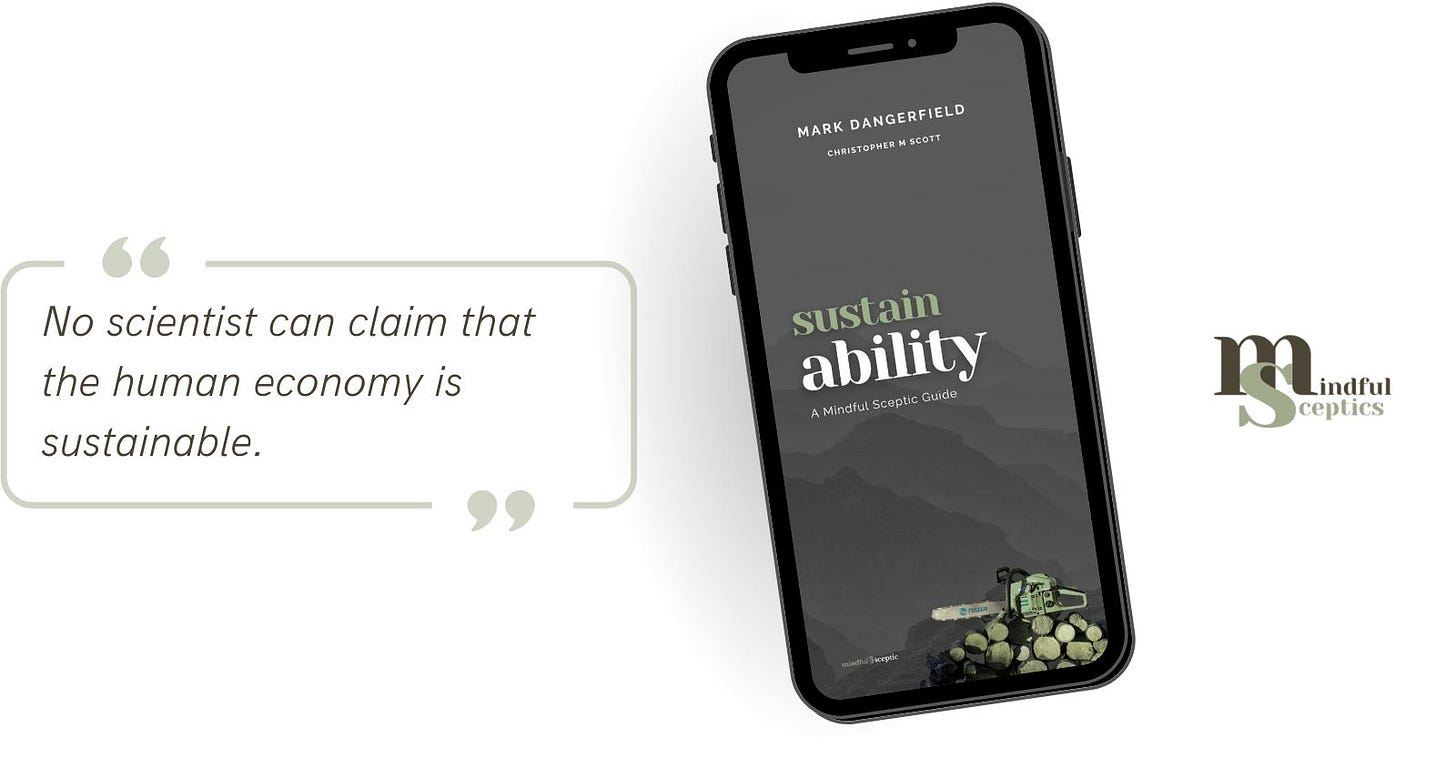Sustainability | A Mindful Sceptic Guide
Environmental groups promise sustainable development. Corporations tout sustainable practices. Politicians set sustainable targets. The UN created 17 Sustainable Development Goals. Everyone agrees we need sustainability for our future.
But what if the entire sustainability movement is built on a fundamental contradiction?
What if "sustainable development" that drives most environmental policy, is an oxymoron that prevents real solutions?
What if 8 billion people pursuing endless growth on a finite planet makes sustainability mathematically impossible?
Sustainability has become the comfort blanket of our age. Governments pledge it. Corporations brand it. Activists demand it. But what if the very idea is a mirage? What if the systems we rely on to protect the planet are quietly ensuring its degradation?
About The Book
This guide cuts through the green gloss to examine what “sustainability” really means in a world built on fossil-fuelled growth, thermodynamic limits, and wishful economics. Written by an ecologist who’s spent decades working across Africa, Australia and Asia, this is a sharp, field-tested account of the contradictions we rarely face.
From pork consumption in China to phosphate rock geopolitics, from land speculation to thermodynamic entropy, the book lays bare how our food systems, economic assumptions, and ecological frameworks are entangled and so often incompatible.
It doesn’t offer false hope. Nor does it wallow in despair. It offers clarity. And with clarity comes agency.
Why Read This Book?
As humanity faces multiple interconnected crises, from climate change to resource depletion to biodiversity loss, the need for clear thinking about sustainability has never been more urgent. Yet much of our discussion about sustainability remains trapped in outdated paradigms that fail to recognise fundamental physical limits or the complex nature of ecological systems.
This guide matters because it offers a more sophisticated framework for understanding sustainability challenges. It moves beyond feel-good environmentalism to engage with the real constraints and opportunities we face. It provides tools for thinking critically about proposed solutions while maintaining hope for meaningful action.
Read this book and you will…
understand how “green” growth hides extractive dependencies
see sustainability not as a goal, but as a tension to manage
gain language and clarity to discuss ecological limits without dogma
sharpen your critical thinking on food, energy, economics, and the future
Who It’s For
This guide is for:
Policy analysts, sustainability professionals, and science educators
Contrarians tired of both greenwash and doomerism
Readers who value evidence, nuance and ecological realism
It’s not for:
Readers seeking feel-good climate platitudes or simple fixes
A Taste from Inside
“The market doesn’t care what the planet needs. It only cares what can be exchanged.”
“Our brains evolved to prioritise immediate needs and discount future consequences, making us innately short-sighted and prone to overconsumption.”
“The market doesn’t need ten varieties of eggs, but it creates them anyway. It thrives not on necessity, but on the illusion of choice.”
“Human activity defies entropy by harnessing energy, but our systems now overwhelm the planet’s capacity to absorb the waste.”
“The food system feeds six billion people using fossil energy—and we act surprised that hunger and waste co-exist.”
About the Author
Dr John Mark Dangerfield is an ecologist with 40 years’ experience in environmental consulting, research, and education across three continents. He’s managed tsetse fly programs in Africa, carbon offset projects in Asia, and land systems work in Australia. This book distils a career’s worth of insight and disquiet into one clear-eyed guide for the intellectually curious.
Take the Next Step
Not Ready to Buy?
Join the Mindful Sceptic Newsletter for weekly essays that think as hard as you do.


